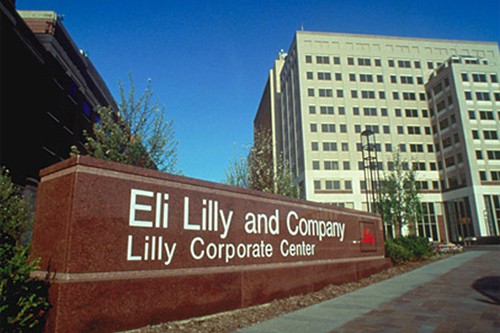
Eli Lilly has the approval it was looking for in Europe for CDK4/6 inhibitor Verzenio, allowing to challenge rivals from Pfizer and Novartis in breast cancer.
Verzenio (abemaciclib) has been cleared by the EMA to treat women with hormone receptor-positive (HR+), epidermal growth factor receptor 2 negative (HER2-) locally advanced or metastatic breast cancer, as a first-line therapy in combination with an aromatase inhibitor or fulvestrant, and as a second-line treatment after earlier endocrine drugs.
The approved uses match the indications for Verzenio in the US, and take Lilly another step forward in its pursuit of CDK4/6 market leader Ibrance (palbociclib) from Pfizer – which grew 46% to $3.1bn last year and is predicted to become a $6bn product at peak by EvaluatePharma – as well as Novartis’ second-to-market CDK4/6 inhibitor Kisqali (ribociclib).
Lilly’s drug has started to gather momentum in the US, where it was cleared for second-line use last year with a first-line approval in February. Sales in the second quarter reached almost $58m, a $20m increase on the first quarter, and Lilly claims it is outperforming Kisqali when it comes to new prescriptions.
Kisqali’s second-quarter haul was $59m, up from $44m in the first quarter, with some of its increase coming from an initial roll-out in some European countries. Analysts suggest Kisqali is coming under pressure from Lilly’s drug, thanks in part to its continuous dosing regimen which avoids patients having to take treatment holidays to avoid toxicity such as neutropenia.
Meanwhile, the first signs of weakness in Ibrance sales were seen in the second quarter after it missed growth forecasts – despite still topping $1bn in the period– although Pfizer says that was down to a slowing in the CDK4/6 market overall and not competition from its rivals.
Verzenio’s approvals are based on the results of the MONARCH 2 (second-line) and MONARCH 3 (first-line) studies, and Lilly is also running a phase III trial called MONARCH E that will test Verzenio as adjuvant therapy in early breast cancer. In the meantime, Novartis is fighting back with the MONALEESA-7 trial, which was the first to show that a CDK4/6 inhibitor can have a benefit in younger, pre-menopausal women.
It’s not all been plain sailing for Lilly’s CDK4/6 inhibitor programme however. The company gave up on a plan to extend the use of abemaciclib into pancreatic cancer earlier this year, and suffered another setback in 2017 when the drug failed to meet the mark in the phase 3 JUNIPER study, which was intended to position the drug in the lung cancer category.




